How to spot an out of touch out of date POS software company
Here are some tips on how to spot a POS software company that may be out of touch or out of date and thereby maybe not ideal for consideration for serving your business.
- Nameless / faceless. POS software businesses that do not provide public-facing access to the names and contact details for their leadership team demonstrate a lack of faith in your business in our view. Retail is personal. The service of needs of retailers its personal. Here at Tower Systems you can see who we are and tap into our contact details easily, quickly. If you are looking at a POS software company and can’t see authentic photos and genuine leadership team contact details, wonder about their commitment to personal service.
- Fake sales people. Some POS software companies use fake names for sales people. They use a cartoon type image to represent them, too. This should be a warning sign. Not using real names and real images or videos may reflect rapid turnover of sales people. That’s a warning sign right there. You want your POS software sales person to stand by what they sell. they do this by being themselves and sharing their real contact details.
- Clip Art. if you see that on a POS software business website run, run fast! It’s so 1980s, so out of date … leaving you to wonder if their software is out of date.
- Free software. You’re in business right?! You understand that businesses need income to exist. Free is not a sustainable business model.
- Are they on a list of the best? Check it out because it may be a list they paid to be on. If a few clicks you can soon discover this.
- Fact check. Let’s say, for example, they claim to a partner with, hmmm, Microsoft. You can soon see if this is true. If they are not such a partner you then know they have made an inaccurate claim on their website. Is that what you want from a PSO software company.
We share these tips today as a reminder that not all POS software companies are the same. Do your research. Start with what you need in your business and then focus on the best software that serves your business needs. remember, you are in control. Choose what you want, what you know is right for your business.
Beware the con of POS software comparison websites
There is a con online that is duping small business retailers. The con is POS software comparison websites … that they do not compare software.
Too often POS software comparison websites do no comparison at all. They will accept any POS software business to be listed through them as long as that business agrees to the fees charged by the comparison website. It really is that simple. Pay the bucks and your business is put forward as one recommended as worthy of consideration.
There is no comparison done by POS software comparison websites. They are an ad platform that POS software companies pay to be listed on.
We know this from first hand experience being signed up to a POS software comparison website for a short time. They didn’t;t compare us, check us out, look at our software or do anything that could be considered an assessment of our suitability.
POS software comparison websites do not comp0are POS software.
Sure, you enter responses to some questions – this is only so they can provide their customers, the paying POS software companies, more information about your needs.
POS software comparison websites are an ad platform plain and simple.
Look at the POS software listed through them and you may not be seeing all of the software options that could be suited to your specific business needs.
There is no substitute to thorough research. You owe it to your retail business to do that. This is why we recommend against using a POS software comparison website – they restrict the businesses pitched to you. They do this without really understanding your business needs.
POS software comparison websites do not compare software, certainly not in our experience at least.
Our opinion is that if your business is serious about its POS software you need to do your own research, create your own short.list and do the work of looking at the software yourself. This way you are pursuing the outcome that is most appropriate to your own business needs, based on your own work and focus. We are certain this approach will give you a better business outcome.
Buyer beware. That POS software comparison website that says it has done the work for you and done the comparison and found the best of the best may have done none off those things.
Hug your business
It is …
Yes, it’s a superpower!
Thank you for shopping local for Easter 2021 …
We are grateful …
Buyer beware: comparison websites may not have compared as they claim
Product and service comparison websites are popular online. If you search for POS software, it is likely that an ad from a comparison website will be the top result. Indeed, depending on the time of day you search, the first three or four results will be be for comparison websites advertising POS software.
What’s wrong with advertising? Nothing, if the claims in the ad are accurate.
Based on our personal experience, comparison websites do not provide the service they suggest they offer. While online the comparison website we worked with claimed to have compared POS software in order to recommend the best, no such comparison was undertaken. Once we saw, first hand, what they were doing we ended our short relationship with them.
Does this mean all comparison websites operate this way, claiming they have compared products and services to bring you the best? No. we can only speak to what we experienced ourselves. However, that experience was enough for us to say, no thank you. We will not engage with sites that claim something they do not do.
We wish the ACCC, state based Consumer Affairs and other authorities would look into the operation of comparison websites, getting behind the scenes, looking at the contracts and understanding the evidence. we think they will find that some comparison websites are an ad platform plain and simple – claiming to compare when they in fact do no such comparison. Shoppers are duped in these situations, thinking they are being recommended the best fit, the best software … when, in fact, they are being pitched software the comparison website is paid to ‘recommend’.
We wish Google would look at this as well as they are making money from the comparison website game being played. these websites pay Google too appear ahead of natural search results. They are profiting from the game being played.
Here at Tower Systems we want our software to be installed by businesses that choose it based on their own research and active comparison with other possible solutions. We want to be authentically chosen for good business reasons and not because we paid to come up first in some fake best of the best search result online.
If you are searching for a product or service and a comparison website advertises to be a top result, our advice is beware, do your research … choose based on what you discover for yourself and not based on what a nameless and faceless website claims is the best of the best. Deep pockets for advertising doe not make a company or product the best.
Failure of leadership at Parliament House in response to report of rape
Failure of leadership at Parliament House in response to report of rape.
The handling of the report of rape in ministerial offices at Parliament House in Canberra in 2019 reveals a failure of responsibility and care from ministers in the government, others in leadership positions in the government and some in the press gallery.
The Prime Minister’s comments earlier this week disgusted me. Who knows what Jen might have told him if they had sons.
Now, a week on from the story surfacing, we are slowly getting more evidence that reveals how appallingly this report has been handled by the government.
The victim comes first. Care for them ought be paramount. Instead, we have had obfuscation, denial and backgrounding to journalists against the victim.
What has been on show in Canberra is dreadful leadership that disrespects victims and women more broadly. I would be ashamed if this happened in my business.
We need better from our politicians, those who work for them and journalists.
Shame on us if we let this story pass us by without speaking up.
Is Retail Express the only POS solution with the features and support you need to build a thriving multi-channel retail business?
Australian POS software company Retail Express currently claims at their website:
Retail Express is the only POS solution with the features and support you need to build a thriving multi-channel retail business.
We do not agree with this statement by Retail Express.
We know that here at Tower Systems we have helped plenty of retail business owners to build thriving multi-channel retail businesses. We know of other POS software companies that have done this, too.
It is frustrating seeing a company claim they are the only company doing something that your own business has done and is doing.
Here at Tower Systems, we prefer to focus on what we do for our customers, we prefer to focus on that over which we have control. We don’t like getting caught in what others are doing, it can be distracting. They, after all, need to be responsible for their own action and claims.
The Retail Express claim came to our attention and we felt we had to publicly state that we disagree, to state that we have in our POS software and services features and support helping local small business retailers to build a thriving multi-channel retail business.
We understand that in sales claims can be made. Our advice to small business retailers looking at and considering POS software is – check out every claim, ask for proof. It is important that you do your due diligence on software you are considering and the POS software company you are considering. You need to satisfy yourself that what they have claimed is accurate, supported by evidence.
For what it is worth, be wary of claims of being the best or being the only. New are not sure how any company can know these things unless they have looked personally at their competition, used them and throughly researched what they do. Here at Tower Systems we do not do that. We focus on what we do and how we do it’s that is what matters most to us and to our customer community., We don’t have the time to thoroughly research our competitors to make certain claims about what they do versus what we do.
if you are considering POS software for your retail business, we would love to be considered along with other POS software companies. We will gladly show you our software, let you explore it yourself and answer all of your questions.
Are we the best for your business? Only you can tell. Are we the only one doin g what we do? No, but there is only one Tower Systems.
Melbourne in lockdown, again …
While Melbourne, where our business has its head office, is is lockdown again, from midnight last night, here at tower Systems it is business as usual, as it was through the last two lockdowns.
Since we serve essential businesses, we are permitted in the office. Also, with two thirds of our team members permanently working from home, decisions like this latest lockdown, impact us less.
When the latest lockdown was announced we shares support and advice with our customers, along with an offer of free supply of face masks.
So, here, it’s business as usual. We have a busy week next week with several customer-facing online meetings, a preview of our next update and some news to announce.
Covid continues to wreak its havoc more broadly in the community. we are staying safe and ensuring our community of colleagues stays safe. That said, we are grateful that almost all of our customers remain open, enjoying good business results.
Covid one year on in our POS software company
It is a year since Covid started to impact Australia and New Zealand, a year since we started to see an impact within business we serve with our locally made POS software.
What a year it has been.
We have been busier than ever, welcoming plenty of new customers, delivering many new websites for customers, helping our customers pivot ins response to Covid and helping retailers challenged by extraordinary unexpected growth.
We have dealt with all of this in an environment of change. Most of our team members continue to work from home. Zoom continues to be a key too for us in business. Thankfully, we have a commercial account.
Through the year we have added many new POS software user training videos, many new POS software user advice sheets and more. Plus, we have delivered more than 100 live online workshops – each a fresh learning opportunity for our customers. Access to these wonderful online workshops was provided free with them often filmed for later easy access by those unable to make it live.
Our sales team members have been off the road, hauling in an awesome bag of business through remote demonstrations and prospect meetings … learning new ways to do business remotely.
Also, in the last year, we have fundamentally restructured how we do business at its very core.
Thankfully, not one team member has been diagnosed with Covid … for which we are sincerely grateful.
So, yes, it has been a year. We do understand and appreciate that we have not been alone in having such a year. That’s the thing about the pandemic, we are all in this, as cliché as that sounds. We have sought to make the last year our own, listening to our heart, following our own path, pursuing what we think is our to the needs of our small business retail customers for it is what matters to them that matters to us.
If anything, the last year has given us an opportunity to re-focus and renew our attention on our local small business retail community. We think this has been a factor in the wonderful and truly appreciated growth that we have banked.
Covid is a once in a lifetime experience. We have sought, without being too cocky, to ensure that it plays as an opportunity for us and for all who rely on Tower Systems for POS software, for income and for career fulfilment.
Thank you for being on this journey with us. We’re far from done. Look over the horizon – the sun is rising on a new day.
Beware POS software comparison websites as they are unlikely to have compared the software they pitch to you
There are websites that claim to be software comparison websites. They claim to have done the work for you, comparing software. They offer to suggest several vetted software companies for your consideration.
In our experience it is unlikely the comparison websites will have compared the software they pitch to you.
It’s our opinion that software comparison websites are purely an ad platform for the businesses that pay to have their software pitched as worthy of consideration by prospective customers.
There is no comparison. We say this based on our own first-hand experience. Our software was not looked or assessed. They wanted money from us per lead. That was it. This makes the comparison website an ad platform plain and simple.
Online they pitch as offering a service, something of value, to the software shopper. The reality is the comparison website businesses offer a commercial service to the software companies – the software companies are their customer.
We dug deeper, presenting as a business looking for software. Sure, they pitched us to three software companies. There was little in the way of filtering. Knowing what we know from when we assessed them as a software business, they charge 3 businesses $100 each for the leads. That’s an easy $300 made for having a slick website that looks like they have done the assessment fork for you when they have not.
Our advice, based on our experience is do not use a comparison website to consider software.
It’s worse than this though and here’s why …
Having considered a comparison website, trying them for a couple of weeks and then saying no thanks, they started paying Google for our business name as an ad keyword. You search for us and their ad comes up. They then contacted us and said he you should do business with us because we have leads for you. These are leads they got by paying Google money to run ads when people type Tower Systems into Google.
Our company lists first in the natural results. The software comparison company and several other similar companies come up ahead us, with ads.
Software comparison website ads claim to offer quotes from leading companies, trusted companies, the most reliable companies. How can they make these claims when they have not themselves assessed the companies? They cannot.
One company claims we compare all the big brands and more. No, they do not.
One company claims that by using them they can provide access to 20-40% saving. No, they cannot as they do not negotiate on price.
One company claims that they let you compare the best-suited products. No, they do not. They don’t look at the software. They have no experience to make an assessment as to what is best.
The only service the comparison website businesses offer from our experience and research is to advertise on Google and provide their partner software companies with leads if a query falls into an area directly or vaguely covered by the software company.
Buyer beware. Comparison websites we have looked at do not compare. They act as a front for ad dollars, being paid for leads they give to partner software companies, that may not offer the best software in their field.
More retailers engaged in cashless welfare card trial backed by the Australian government
Tower Systems has been engaged in the cashless welfare card project since its inception. We have done this in service of the small business retailers in our POS software community who serve customers locally who are likely to need to use the federal government backed card.
We have met all the required technical design and software development standards, passed proof of concept and rolled out access to retailers who have been early adopters.
Our focus has been on the service of our retail business owner customers, offering them support for a federal government backed payment platform that they think will be of value in their local communities. We have seen this through the proof of concept and trial phases of the project. Indeed, it has been fascinating to be actively involved through these early phases.
This is our approach on most integration opportunities – provide our POS software community customers the connections they want so they can make decisions themselves as to what they use.
Our work on the federal government cashless card project has been long-term, confidential and technically fascinating as we have brought to local independent small business retailers facilities that enable them to compete with much bigger, national often, businesses that are offering access to the card through their systems.
Interestingly, our work on this project has opened other opportunities of value for our retailer community members.
Since we make our own POS software, we have the ability to engage with projects like this at a code level. We are not reliant on other parties to do the work, we do it ourselves.
Tower Systems has developed myriad integrations with external platforms for retailers, groups of retailers and specific retail channels. Each integration is approached in a fresh way, based on the retailer needs, understanding the needs of other parties and working through how best to deliver on the needs expressed through the thorough research process.
As a local POS software company that focusses only on the needs of local small business retailers, we are grateful for every opportunity that supports the commercial viability of these local retail businesses as they are the lifeblood of local communities.
Tower Systems helps more small business retailers tap into government grants
With more grants available for digital innovation, business efficiency and business transformation as local communities evolve from Covid challenges, Tower Systems has been on the forefront of advice for small business retailers as to grants available.
Already this year we have shared information on a range of new financial grant initiatives that serves small and independent retail businesses that are the heart of our local POS software community.
In 2020, Tower Systems provided its customers with a list of financial grant opportunities from federal, state and local governments. We have continued this service into 2021, helping our small business retailer community to tap into Covid related recovery grants where applicable.
Of the current grants available, there are several that fit with what we do and through this we can hell our customers to apply and make the most of the government grant opportunities.
The work we do in this space is without expectation, it is part of mates helping mates, the personal service that we provide at Tower Systems to our community of small business retailers, to our mates.
In addition to helping small business retailers tap into government support grants, we offered in 2020 a range of direct action benefits from our own kit. We have continued with this type of practical and bunnies nourishing support in 2021.
Our goal is to help small business retailers run more successful, more enjoyable and more valuable retail businesses. We do this through our POS software, our support, our business advice and more.
Helping businesses in these ways through the pandemic is core to our company’s DNA, core to us as people who work here. We know that a stronger small business retail sector the stronger our company. So, for sure there is a commercial benefit for us. However, it is the emotional benefit of helping another that pays off. It makes us feel good, feel like we are making an appreciated contribution. That matters to us.
We keep an eye on state and federal government grant opportunities, Ovid and non Covid related, so that we can help our retail customers to embrace any that may be appropriate to their situation.
Grateful to have helped small business retailers with Covid contact tracing initiative
Weeks before state governments released their own contact tracing apps for registering people in a shop or some other location, Tower Systems released a free and secure QR code based solution.
Many small business retailers embraced our free solution. It provided them with an immediate solution that they could show to their customers and thereby demonstrate safe protocols in place, which were key to maintaining shopper traffic.
Being nimble like this is important in small business, especially in businesses that serve small businesses.
What was a stress-inducing announcement from a government about a requirement became an I can do that moment because of our rapid deployment of our QR code solution.
We have ensured the security of contact data collected, not used or accessed it ourselves and ensured the removal of data as per privacy requirements.
Helping small business retailers in situations like this is another ay we can show our local relevance.
A free thank you for shopping local video
Click here to download this free video from us for appreciating those who shop local.
Helping small business retailers through the latest Covid challenge
With Covid continuing to impact communities in New South Wales and Victoria this week, we have reminded our POS software customers of the Covid impact support services available from us. This is a package of opportunities at no and low cost through which our retail partners can mitigate their situation.
Launched in March 2020, our small business retailer Covid response package was a hit. It has been a joy to see how customers have used the free training, free software and other benefits they tapped.
We are grateful to have been able to make a contribution.
Now, here we are in the early days of 2021 and in some communities the challenges are more intense than last year. This is why we have reminded our customers that our Covid support package remains available.
Small business retail is vital to local communities and those living in them. Helping small business retail is another way we can help local communities.
If you know a small business retailer facing challenges in the latest Covid situation, see if what we offer could help. We will do what we can.
It feels like we are holding our breath
It feels like we are all holding our breath, wondering if 2021 will repeat 2020, as we wait to hear the numbers of the day.
The number will be what they are. What we do know is that we can do out bit to stop them growing. That’s why we are cleaning, sanitising and wearing masks … for you, and for us.
The rapid closing of borders was a surprise, yet understandable. However, it feeds into anxiety some feel.
We will do everything possible to provide for you a safe and happy place to shop, so 2021 is more like you hoped.
We are optimistic. Living in Victoria, we have been here before. We know what Victorians can do, what all Australians can do. It’s simple really … wear a mask, wash your hands, keep your distance, discover some delicious new recipes, enjoy jigsaws and talk more on the phone.
Together, we can show this shadow of 2020 that it’s not welcome in 2021.
When 2020 began
When 2020 began, we were in the dark about what was coming for us, for all of us. We had our resolutions, plans and hopes. We had our cherished dreams.
We were unprepared for how 2020 would play out.
The hopes and dreams we started the year with were soon forgotten as the pandemic took over the news, our businesses, our home life and our focus.
2020 sure has been a year.
Looking back, we see heartbreaking human loss and economic challenges, which, sadly for too many, continue today.
Looking back, we also see many wonderful achievements.
There are the big pieces like the 1,000s of scientists working together to create vaccines in record time, people and businesses fundamentally changing how they work and politicians, for a moment, setting aside traditional differences to actually do good.
There is the good news of whole communities working together to ensure people remain safe and to get the numbers down.
In small business, where we spend much of our time, we have seen wonderful acts of kindness, extraordinary local shopper support, greater resilience and deeper community connections. It has been a joy to hear stories of locals consciously shopping locally and genuinely being interested in product sourcing.
We have all learnt so much about ourselves this year, what we can do, the differences we can make, new friends we can serve.
As the sun sets on 2020, we are grateful for this year, for the opportunity to be part of it and to be here, at the end, stronger and grateful for what 2021 will offer.
Happy New Year. May your 2021 be healthy, happy and filled with gratitude.

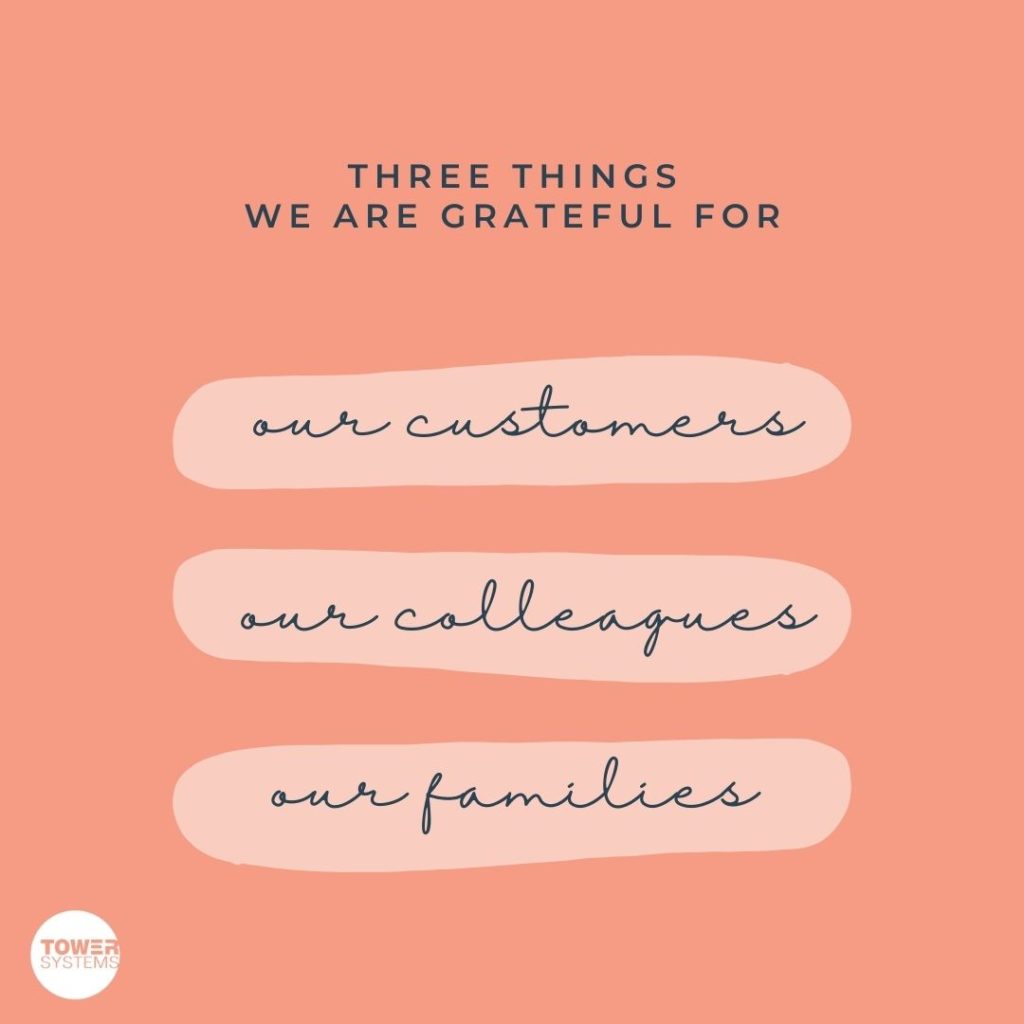
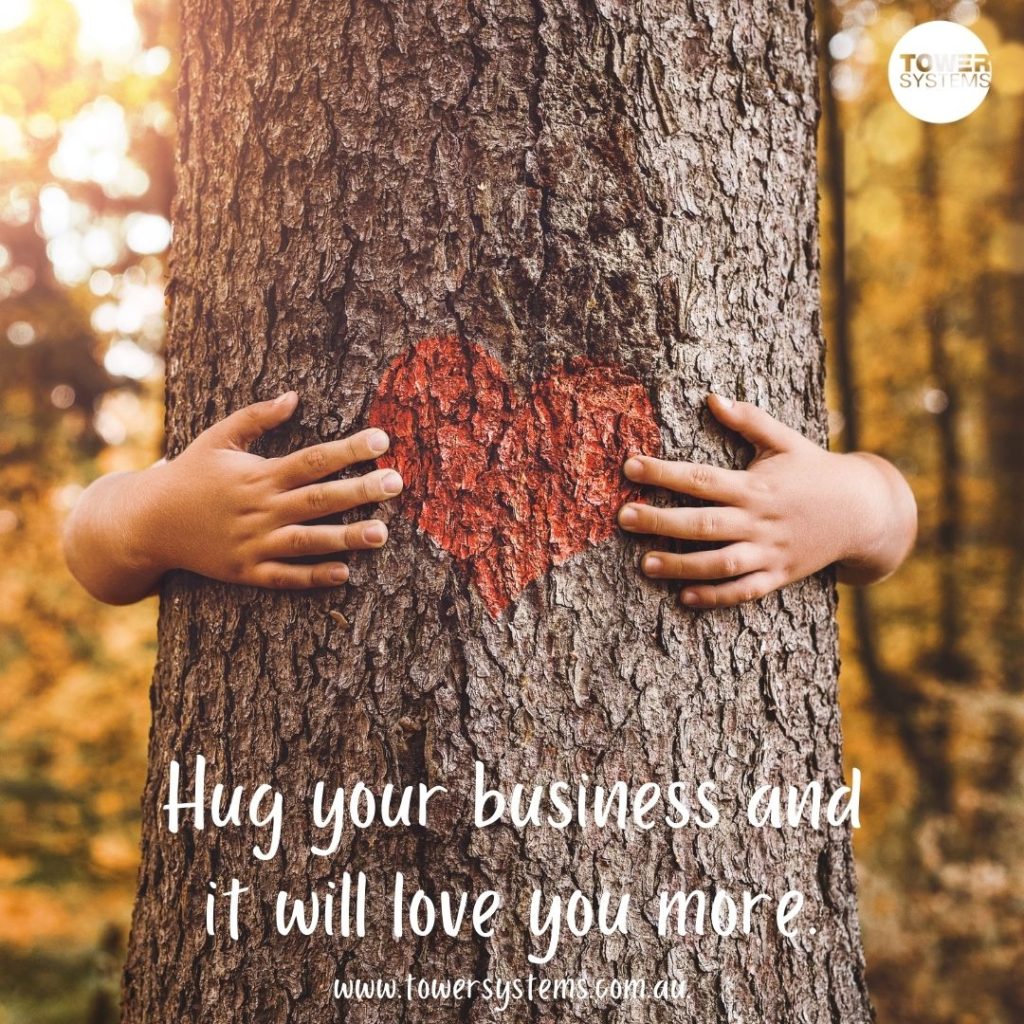
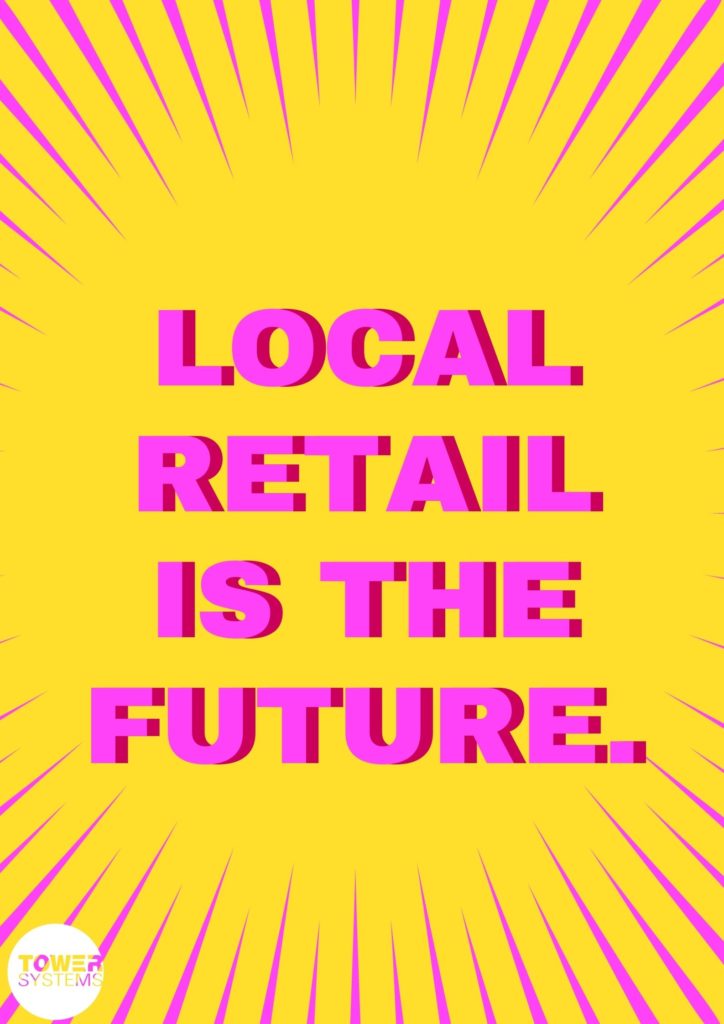
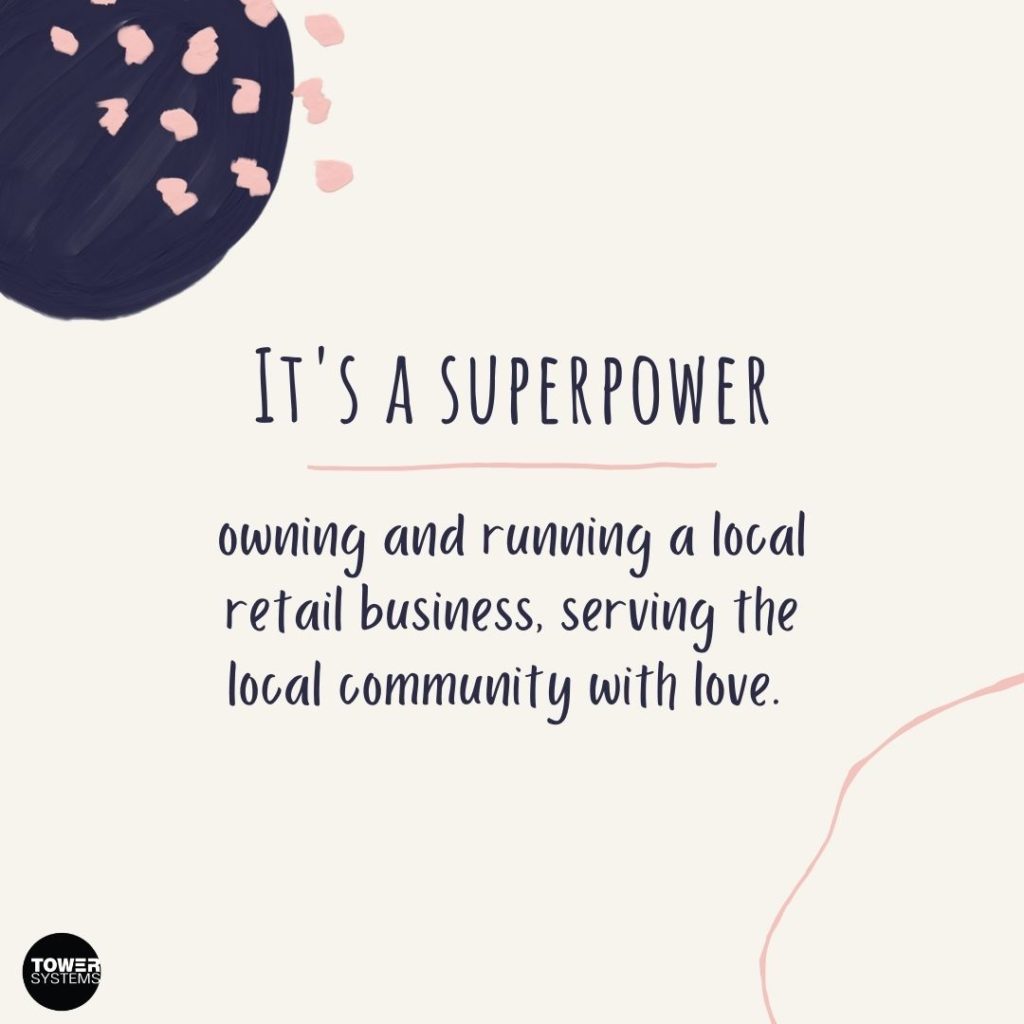
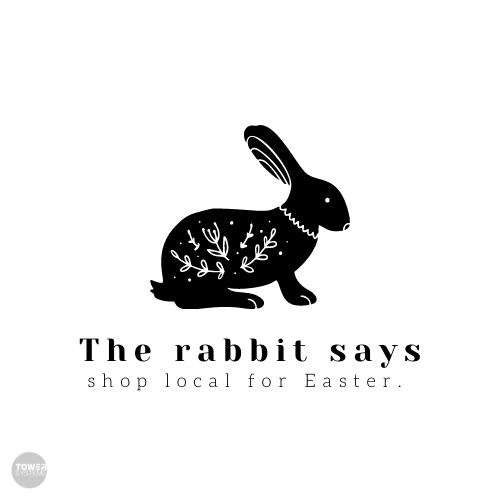
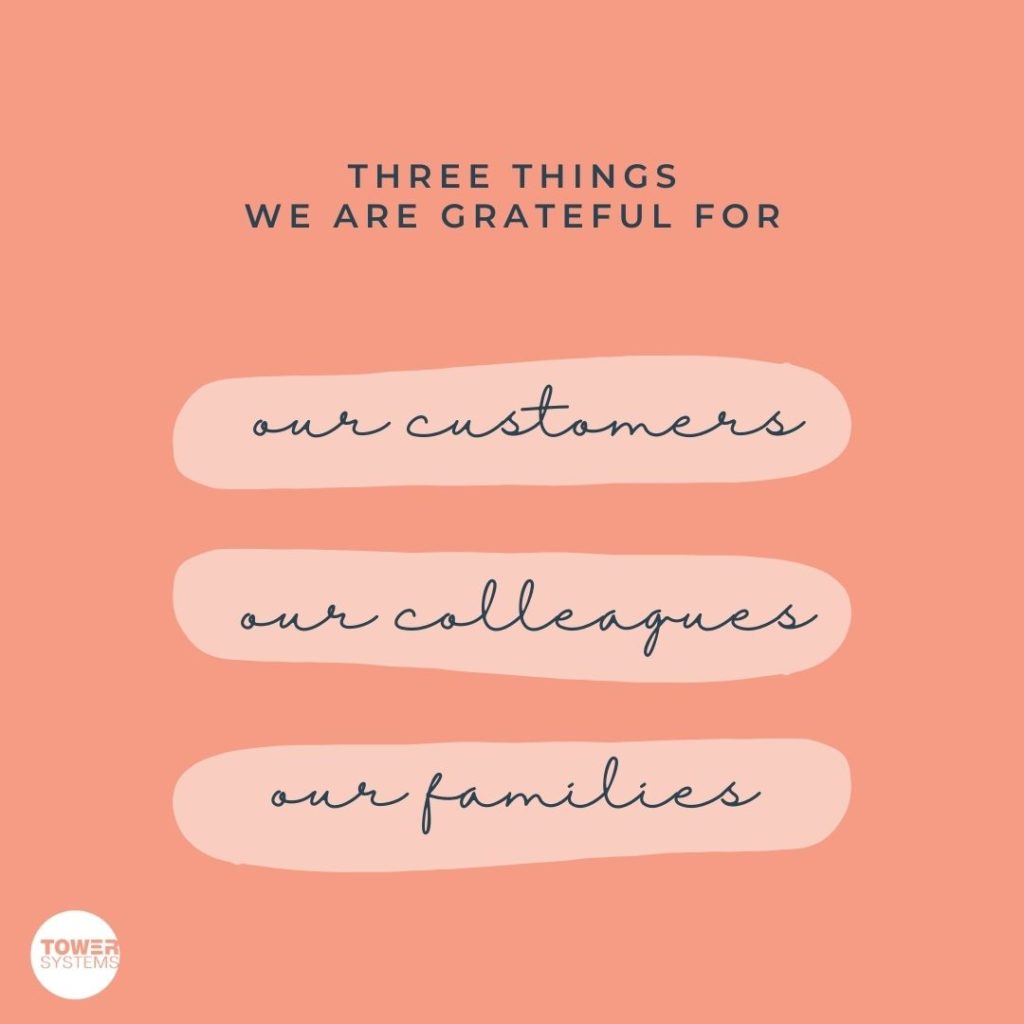
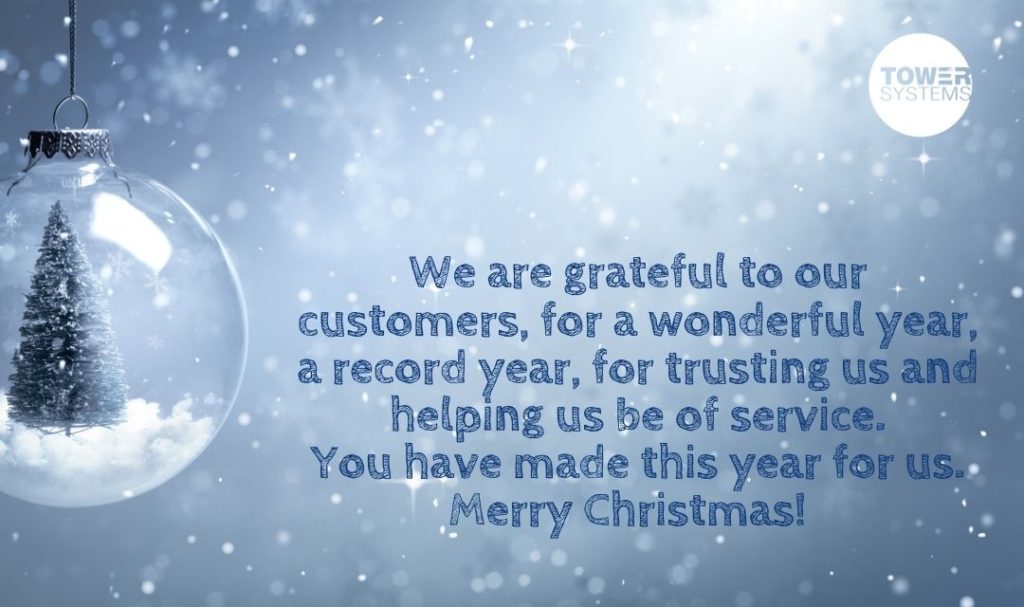
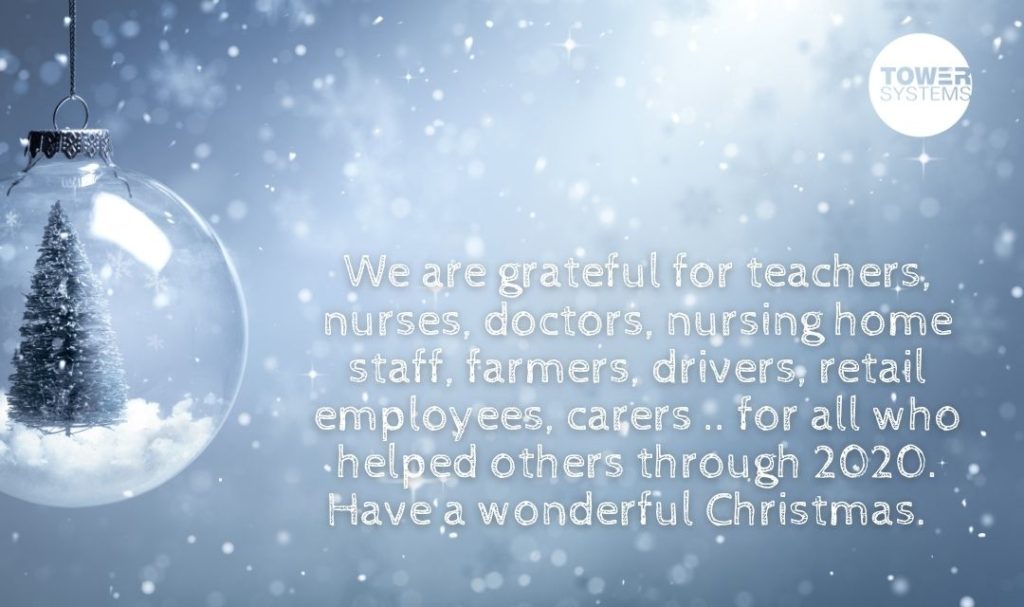
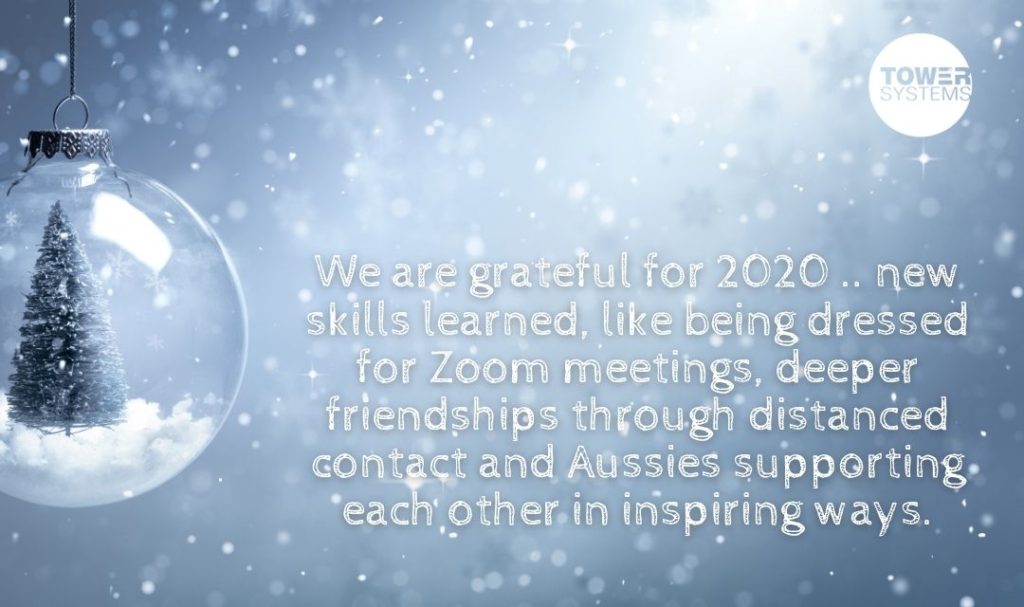
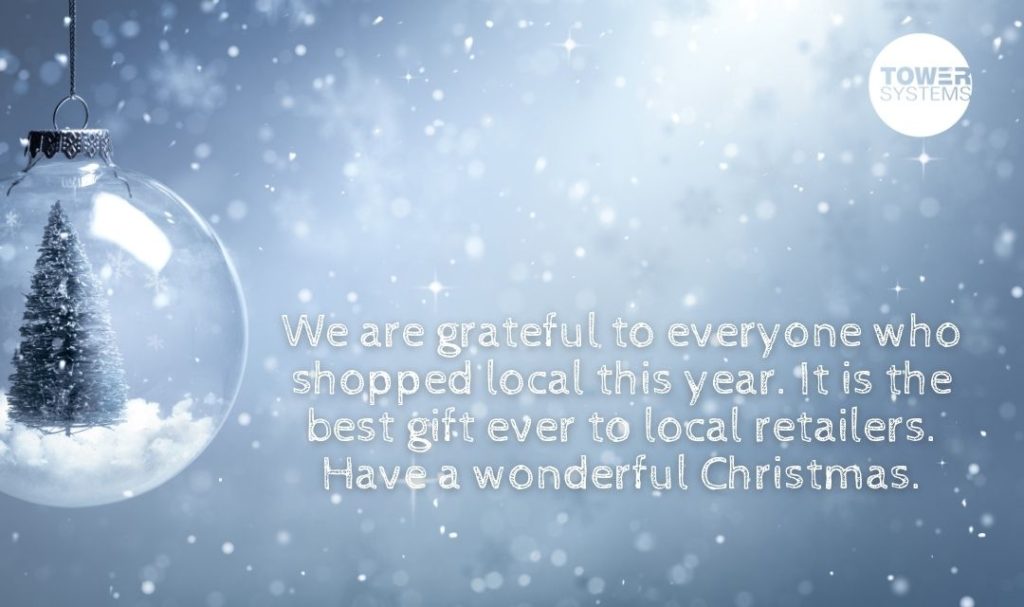
Recent Comments